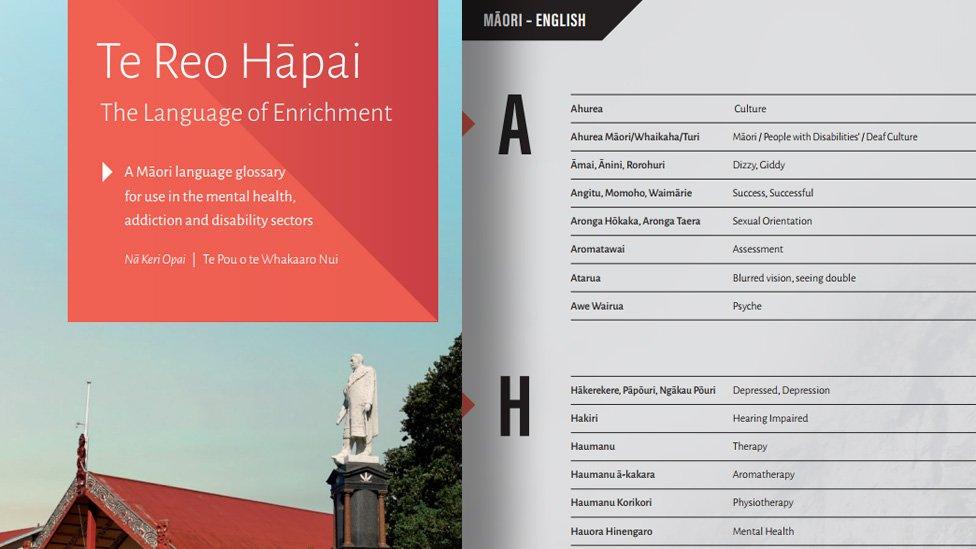Maori words minted for autism and mental health issues
- Published

The booklet has Maori-English and English-Maori sections
The Maori language of New Zealand has just expanded by 200 words and phrases, freshly minted to describe mental health, addiction and disability issues.
Keri Opai, the civil servant who helped devise the words, said they had been chosen not only to fill gaps in the Maori vocabulary, but also to ensure that the terms are non-judgemental.
"In my experience, people with autism tend to have their own timing, spacing, pacing and life-rhythm, so I interpreted autism as 'takiwatanga', meaning 'his or her own time and space'," he told government-funded .
Mr Opai consulted the Maori disabled community in order to develop variants that differ from what he called the "sometimes condescending English terms", and instead emphasise "gaining strength and ability. So the word for 'disabled' itself is 'whaikaha', which means to "have strength or to be differently able".
The new words, terms and sayings are gathered in a glossary called "", which is intended for both healthcare professionals and families, reports.
Maori, the native language of New Zealand's original Polynesian inhabitants, is spoken by about 125,000 of the country's 561,000 people of Maori descent.
It has enjoyed official status only since 1987, and the state now funds Maori-medium schools, two TV channels, and programmes to encourage and develop the language.
Next story:
Use #NewsfromElsewhere to stay up-to-date with our reports via .